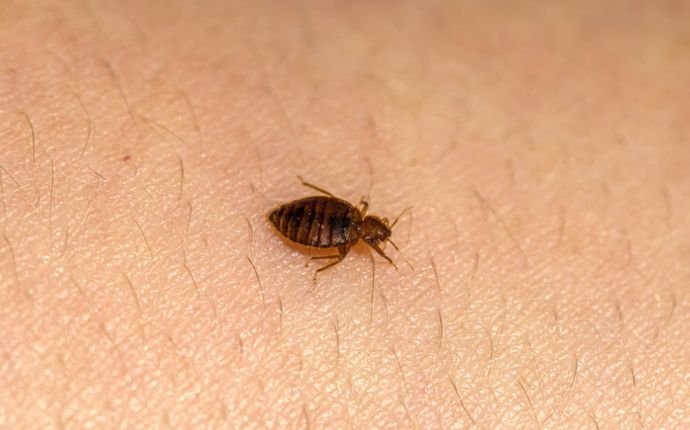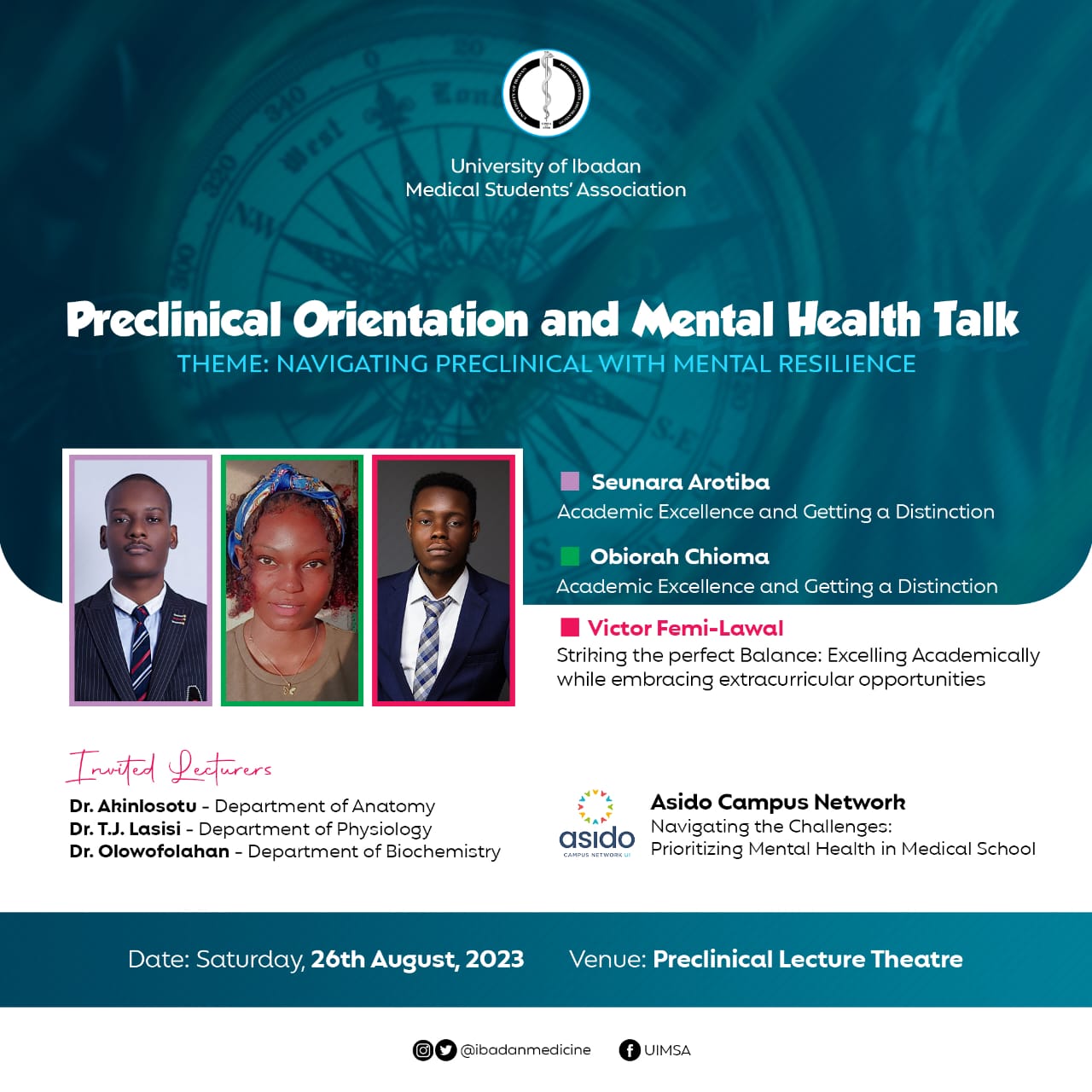The Bedbug Menace


Exhausted from studying and attending many lectures, Tope goes to sleep peacefully in his bed, hoping to get some rest before the next day’s round of strenuous academic work. But he has hardly fallen sleep when a bedbug pokes its head through a crevice on the wall, glances left and right, and then scurries to the exposed skin of Tope’s neck. A few seconds later, the bedbug’s abdomen becomes swollen with blood and turns shiny-red. A sharp pain jolts Tope into wide-eyed consciousness. As he reaches out to scratch his skin in agony, he sees the bedbug scurrying back into its crevice. The frustration that follows is the experience of several students living in University of Ibadan hostels.
Bedbugs—small, brownish-red insects with piercing mouthparts—are renowned for their age-long persistence in UI hostels. Over the years, the battle against these notorious insects has been as futile as the unending fight against corruption. Bedbugs have erected mighty colonies in crevices of walls, floors, roofs, windows, doors, tables, bunks, and almost everywhere! The escalation of this issue has made the living conditions terrible and unbearable, as the menace of bedbugs have enormous consequences on students.
Bedbugs—A hazard
First and most important is the negative effect on health, which results from scratching the itchy sites of the bedbug bites, as this could inflict open wounds and lesions on the skin, exposing the skin to infections. The fact that the skin is the first protective organ of the body emphasises that this is a severe health risk indeed. Even worse is the resulting anemia caused by blood loss from continuous blood-sucking by the bedbugs.

Another consequence is the deprivation of sleep. Healthcare providers greatly emphasize the importance of sleep, but bedbugs continue to deprive students of the minimum required hours of daily sleep. Some students do not even sleep in their rooms, but resort to lecture rooms to evade being bitten by bedbugs. One must ask; how do students cope in these conditions? And what happens to their academic performance?
A hostile learning environment hampers students’ academic performance because it hinders effective study. When combined with sleep deprivation, learning becomes even more difficult as effective study is impossible. Apart from infesting living quarters, bedbugs have gone as far as dominating the reading rooms of some UI hostels. As a result, students who go to study end up scratching and killing bedbugs instead of studying as they intended to. A student, who pleaded that his identity remain undisclosed lamented, “I once went to the reading room and found out that it was crawling with bedbugs.” The bitter experience made this student go about warning fellow students never to enter the reading room. Another student who had a similar experience recounted, “I slept off and awoke to see blood all over my book and hands.”
What’s the way out?
In light of this, the pertinent question that arises: How can these bedbugs be eradicated? Fumigation (a method of pest control using chemicals to kill and prevent pests from infesting a particular area) is carried out once per session in UI hostels. While it seems to work in the short term, the bedbugs reappear more aggressively and brutally after a while. In this way, the cycle of bedbugs continues to persist. This dire situation shows that a better approach must be taken to ensure effective fumigation of hostels.
To achieve this, strict supervision of the hostel fumigation must be ensured. This includes ensuring that the chemicals used are effective and that there is no oversight in the fumigation of any room in every hostel. High-risk regions should be targeted, while age-long crevices in the walls of rooms should be sealed up. Reports have shown that some students leave their belongings in their rooms, thereby disrupting the fumigation process. To prevent this, students should comply with removing their belongings whenever fumigation exercises are to be carried out. Indeed, if these procedures are adhered to, bedbugs can be eradicated.
There are concerns that students go to bedbug-infested places and carry them to areas where they did not previously exist. Thus, bedbugs spread through all the hostels. To prevent this, students must exercise caution when they enter regions that are likely to be infested; especially hostels renowned for their prevalence. They must wash their clothes upon returning and inspect their bodies for any possible bedbugs. Students should also make use of insecticides in their rooms to get rid of the bedbugs, although this will only serve as a first-aid measure before a proper fumigation on a larger scale.
Furthermore, sanitation should be enforced in hostels. This is because many students are negligent about cleanliness, thereby contributing to the spread and persistence of bedbugs. Dirty floors, cramped-up spaces, piles of dirty clothes, and undressed beds, contribute to the spread of bedbugs. In fact, many students seldom clean their rooms. For some students, the daily routine of sweeping floors does not exist. Instead, they would sweep once a week or even once in a semester, or never at all. These bad habits combine with the unsanitary toilets and dilapidated structures of hostels to make bedbugs a never-ending epidemic.
To drive a positive change in attitude amongst students, there be a compulsory sanitation day for all hostels. This implies that hostels should conduct a compulsory sanitation exercise, for instance, every Saturday morning from 6:00 AM – 10:00 am. This will ensure good sanitary practices and reduce the population of the perpetual bedbugs. The sanitation day should emphasize room clean-up and laundry, followed by inspection rounds by Hall officials and porters. To facilitate this development, the cleanest rooms or floors should be rewarded, with a commensurate punishment given to the dirtiest rooms or floors. Sanitation will also complement the fumigation exercise since fumigation alone cannot sustain the absence of bedbugs. Thus, a compulsory sanitation day will be the prolong the effect of fumigation.
You may wonder why mosquitoes, cockroaches, rats, and other pests have not been addressed thus far. Well, it will interest you to know that all of them are endemic in the hostels. Rats have become casual visitors—big and fat—and stroll about in broad daylight. Mosquitoes, on the other hand, are so rampant that they have become close companions. What makes bedbugs different is that they are outrageous blood-suckers who make life unbearable for students, deprive them of sleep and a conducive learning environment, and pose a severe threat to health. Hence, an end must be to bedbugs, or sooner or later, they will wreak irreparable havoc on thousands of student lives!
Benedict Ugor


